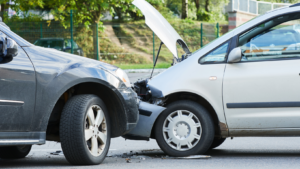The prolonged timeline of car accident settlement cases can be frustrating and confusing. As you deal with the aftermath of a car accident, the delays in settling can compound the stress and uncertainty you’re already trying to manage.
Several factors often explain why your car settlement may take longer than expected. Insurance companies may employ delay tactics, such as requesting extensive documentation or conducting prolonged investigations, to reduce payouts. Additionally, disputes over liability or the extent of damages can prolong negotiations.
Understanding these common reasons can sometimes help manage expectations and empower you to understand the settlement process more effectively.
Contact Us Today to Schedule
a Free Consultation
First, the investigative phase of personal injury settlements is key but time-consuming. Your DC car accident lawyer will hire forensic teams to carefully gather evidence and reconstruct the events to determine who’s at fault. This detailed work is necessary to establish liability, but it takes time and resources.
At the same time, injured parties are undergoing medical treatment and rehabilitation. It’s important to fully understand the extent of
Next comes the negotiation stage, a back-and-forth process where both sides aim for the best outcome. Insurance adjusters, known for their persistence, examine every detail to minimize payouts. This exchange of offers and counteroffers can take months as both sides work toward a fair settlement.
The nature of the legal system itself can also slow things down. Overloaded court schedules can delay proceedings, and thorough document review and adherence to legal procedures can extend the timeline even further.
Additionally, there’s always the chance of an appeal. If either party is unhappy with the initial ruling or terms, they might decide to challenge it, restarting the process and requiring even more time and effort.
In short, pursuing a car accident settlement is a journey filled with investigative work, medical evaluations, tough negotiations, legal hurdles, and potential appeals. Though it can be a long and challenging process, ensuring a fair and just resolution for everyone involved is necessary.
The time it takes to settle a car accident claim can vary widely. On average, most settlements are reached within a few months to a year. The fault is clear in simpler cases, and minor injuries might be resolved within a few months. However, more complicated personal injury law cases, such as those involving serious injuries or disputes over who is at fault, can take longer, sometimes over a year.
Several key factors can influence how long a settlement takes. These include the severity of injuries, the time needed for medical treatments, the willingness of the insurance company to settle, and whether the case ends up going to court.
Staying in close contact with your lawyer and insurance company can help you better understand the timeline for your specific case.
Again, the timeframe can vary widely, but in DC, many cases usually take six months or longer to finalize your accident settlement. The intricacies of the legal process significantly impact how long your case will take. A simple car accident claim with no major injuries or disputes could be resolved in a few months. But if your claim is contested, with disagreements over the at-fault party or how much financial compensation you deserve, it will likely take much longer to settle.
Due to various factors, settling a car accident case can sometimes take longer than anticipated. Understanding these potential reasons for delayed personal injury cases can help set realistic expectations and reduce frustration.
Insurance companies can sometimes cause unnecessary delays in the settlement process, forcing car accident victims to endure a frustrating waiting game. Common tactics include taking a long time to review the claim, request additional evidence, or conduct further investigations. These delays can be tactics to avoid paying large sums or pressure claimants into accepting lower settlements.
Lengthy, thorough investigations are necessary to establish fault and gather evidence. These often involve analyzing accident reports, reviewing medical records, and interviewing witnesses.
Gathering all necessary evidence, including medical bills and records, can take considerable time. Medical providers might be slow to provide records or further medical evaluations may be needed. Additionally, collecting police reports, witness statements, and other evidence to build a strong case can contribute to delays.
Compiling this documentation from multiple sources, such as hospitals, doctors’ offices, and employers, can be laborious and contribute to an extended auto accident settlement timeline.
The settlement process can become more complicated when multiple parties are involved in a motor vehicle accident, such as other drivers, pedestrians, or even multiple insurance companies. Each party’s involvement needs to be investigated and accounted for, which can extend the accident settlement process.
Some common types of parties involved in car accident settlement cases include:
In cases involving severe or catastrophic injuries, the settlement process can be prolonged due to the need for extensive medical treatment, future damages, and ongoing care. The full extent of injuries and long-term effects may not be immediately apparent, necessitating a lengthier period to assess the damages and future care requirements accurately.
Negotiation disputes can extend the time it takes to settle a car accident claim. These disagreements often arise over the accident’s details and the damages’ extent, making the settlement process more time-consuming.
When there are disagreements about what happened during the accident, it can lead to extended negotiations. Both parties must present evidence and possibly bring in experts to establish the facts, which can prolong the settlement process.
Disagreements over the amount of damages can also delay settlement. Common factors include disputes over medical expenses, financial losses, property damage, future expenses, and non-economic damages like pain and suffering. Both sides may need to negotiate back and forth to reach an agreement.
In Washington, DC, the contributory negligence rule can complicate settlement negotiations. If it’s determined that you were even slightly at fault for the accident, you might be barred from recovering any damages. This rule can lead to significant disputes and delays as each side tries to establish the degree of fault.
Understanding these potential reasons for delays can help you confront the settlement process more effectively and set realistic expectations for how long it might take to resolve your car accident case.

Our personal injury lawyers will advocate for you in negotiations, challenging lowball settlement offers, and accurately presenting your losses and proof of damages. If your case goes to court, our seasoned litigators will passionately represent your personal injury claims, ensuring your voice is heard.
Trusting Regan Zambri Long means having a dedicated personal injury firm fighting tirelessly for the justice and fair compensation you deserve. Contact our legal team today for a free consultation.